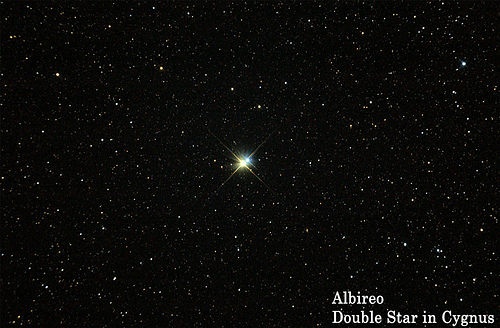 May-June 2010 Sky
May-June 2010 Sky
Time flies, and the sky slowly changes. Can you believe it’s May and time for the Summer Triangle already? Welp, it is! Check out the starmap and all these wonderful things to look at. For more – go to the Abrams Planetarium’s Night Sky Notes!
Notable Sky Objects
SATURN
Saturn is beautiful in the southern sky this month – in Virgo’s head. It’ll be one of the two brightest “stars” you can see in the south/southwest. Since Saturn is still mostly edge-on to us I’d recommend a small telescope to pick out the rings, whereas normally you can see them with steadied binoculars.
MARS
Mars continues to grace our skies – shining pinkly in the West after sunset and sticking around until midnight (early May) or only 9pm (late June).
JUPITER
Jupiter rises around 2 or 3 in the morning – you can find it almost due East.
MERCURY/VENUS
Mercury is pretty close to the Sun’s position, but you might be able to catch it at the end of May just before sunrise. Venus you’ll have to try for just after sunset, because it sets very soon after the Sun does.
EVENTS
June 14 – Earliest sunrise of the year.
June 21 – Summer Solstice.
June 27 – Latest sunset of the year.
New Constellations
SCORPIUS – The Scorpion
SCIENCE: Antares (alpha scorpii) red supergiant of variable brightness with a close blue-white companion orbiting every 900 years. Means “Rival of Mars” (anti-Ares) or “Like Mars”
MYTH: To the Chinese it was a dragon; in the South Pacific, it was Maui’s fishhook used to pull up islands from the ocean floor.
The Summer Triangle (well, we have most of it anyway):
Cygnus(the Swan) and Lyra (the Lyre/Harp) reappear, and the bright star from Aquila (Altair). The summer triangle (as you can tell by the name) will be directly overhead come summer, but now it’s low in the East, a harbinger of brighter days to come.
CYGNUS – The Swan
SCIENCE: Albireo – Cygnus’ head is the prettiest double star in the sky. Look through a telescope and it separates into a glowing gold star, and a tiny blue point. This is a good thing to suggest for people with telescopes at home.
MYTH: Do you like gory details? When his brother Phaethon was killed by Zeus and scattered all over the Earth, Cygnus picked up all the pieces. The gods laughed, calling him a “bobbing duck,” picking up all those pieces. Then they started to realize that maybe he was doing a good deed, so they put him in the sky as a “noble” bobbing duck – a swan.
LYRA – The Lyre
SCIENCE: M57, the Ring Nebula is between the bottom two stars in the constellation. It’s pretty hard to pick out, even with a small telescope, but it is a good target for larger scopes, and Hubble has a beautiful image of it.
DELPHINUS – The Dolphin
This tiny constellation is as cute as a bug’s ear … or a dolphin’s. Probably one of the easiest constellations to spot – Delphinus is isolated in a dark part of the sky near Aquila.
MYTH: The four stars that make Delphinus’ head are also called “Job’s Coffin.” In the United States you don’t often think of Christianity as the underrepresented religion, but in our sky it is: the sky is dominated by the Greek names and stories.
“Tiny” Guys
Going for the Gold? Here’re this month’s itty-bittys.
LYRA – The Lyre
CORVUS – The Crow
CRATER – The Cup
COMA BERENICES – Berenice’s Hair
LYNX – The Lynx
SEXTANS – The Sextant
HYDRA – The Sea Serpent (Big and dim)
LACERTA – The Lizard
LEO MINOR – The Small Lion (Between the Big Dipper and Leo)
VULPECULA – The Fox
SAGGITA – The Arrow
SCUTUM – The Shield
LIBRA – The Scales
CAMELOPARDALIS– The Giraffe
Returning Constellations
BOÖTES – The Herdsman
HERCULES – Hercules
CORONA BOREALIS – The Northern Crown
VIRGO – The Virgin (or “Princess”)
LEO – The Lion
CANCER – The Crab
GEMINI – The Twins
CEPHEUS – King Cepheus
DRACO – The Dragon
URSA MAJOR – The Great Bear
URSA MINOR – The Little Bear
CASSIOPEIA – The Queen
Where’d I Get My Info?
My memory, and Zeta Strickland
![]()
~ A l i c e !






